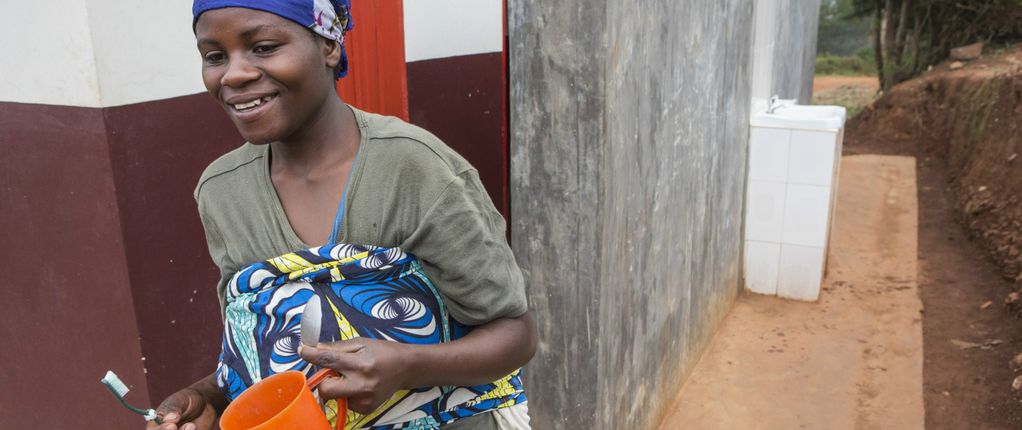
This project has been completed.
Clean drinking water for better health
Villages, schools, and medical institutions throughout large parts of the eastern Democratic Republic of the Congo suffer from a chronic lack of clean drinking water, and persistently poor hygiene conditions. This makes the diseases that thrive and spread in these conditions a serious problem, and means that epidemics are a constant danger. This is a threat which local health structures lack the training and resources to deal with.
Malteser International is working to protect the health of people in the DR Congo by improving the standard of water, sanitation, and hygiene in 21 villages. This project will play an important role in complement to Malteser International’s ongoing work to improve the quality and effectiveness of the medical infrastructure in the eastern DR Congo, which has been underway since 1996.
Water, sanitation, and hygiene is in a critically poor state throughout the DR Congo health zones of Ituri and Haut Uélé. There are almost no fixed and permanent water sources, and sanitation for most households consists of the most basic kind of latrine. Hygiene awareness is as a rule extremely poor. Basic techniques such as handwashing with soap, or hygienic food preparation, water procurement, and storage are almost entirely unknown.
Hygiene conditions are also generally poor in public buildings such as health centers and schools. An adequate water supply is often lacking, while sanitary facilities are frequently in an extremely poor condition and offer little privacy. A lack of latrines and a poor level of sanitation in schools leads to a high rate of absence and causes many pupils to drop out completely. This problem disproportionately affects girls who have started menstruating, who often simply remain at home during their periods because of a lack of sanitary facilities with an appropriate level of hygiene and privacy.
The water supply in the vicinity of medical centers often consists of a simple and unsecured water source, which patients use to collect their own water for drinking and other uses. The unsecured nature of these sources means that they can be dirtied by contact with animals and people, as well as used for the disposal of medical waste – exposing those that use them to the risk of infection, injury and poisoning.
To improve the health of the inhabitants of 21 villages in seven health zones in the DR Congo, and increase resilience to disease epidemics by providing better access to clean drinking water, initiating the safe disposal of waste and waste water, as well as raising awareness of improved hygiene practices.
At 14 selected medical centers:
- Improving access to water by drilling boreholes and securing water sources
- Construction or rehabilitation of sanitary facilities including latrines, showers, and washing areas
- Construction of a locally-adapted oven for the destruction of medical waste
- Provision of medical equipment
- Establishment and training of a hygiene committee
In 21 villages and 13 schools:
- Monthly water quality testing
- Construction or rehabilitation of sanitary facilities and establishment of adequate access to drinking water at schools
- Construction of latrines and handwashing facilities
- Establishment, training, and support of water and hygiene committees
- Implementation of hygiene awareness campaigns
- Provision and instruction of students and teachers in the use of feminine hygiene materials
- Support for waste disposal
On the health zone level:
- Training in infection prevention
- Introduction of workshops to annually review crisis reaction plans
Country info
Capital: Kinshasa
Area: 2,345,410 km²
Population: ca. 102.3 million
Project data
Donors: German Federal Foreign Office, private donations
Partner: Health centers, referral hospitals, schools, local and national health authorities








